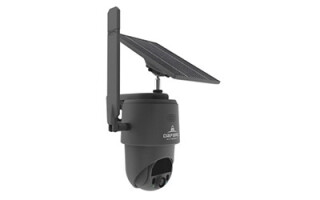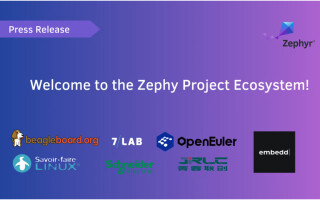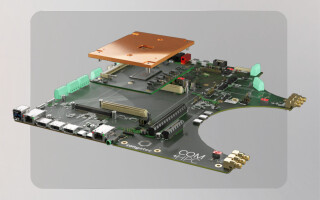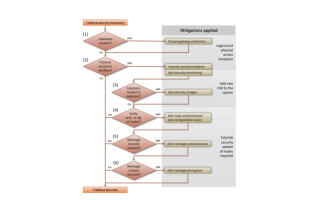Portwell Announces New Carrier Board and the Expansion of Its Family of ANS Compact Desktop Network Security Appliances
March 01, 2021
News

New Carrier Board Features an Extension Card Combo for COM Express Type VII Module; New ANS-9142 and ANS-9141 for SD-WAN Applications Integrates Intel QAT and DPDK
American Portwell Technology launched PCOM-C7000, a new customizable carrier board for COM Express Revision 3.0 Type VII modules.
The company also launched the new ANS-9142/9141 network security appliance utilizing Intel's Atom C3338R 2C processor (the cost-effective ANS-9141) and C3436L 4C processor (the higher performance ANS-9142) (Formerly Denverton Refresh). Portwell’s ANS Denverton series is a compact desk- and/or wall-mount system designed with up to four CPU cores, up to 8x GbE ports and Intel QAT and DPDK support. Both appliances are designed and built with SD-WAN (SDN) applications in mind for deployment in 5G and IoT devices.
According to Frank Yeh, American Portwell Technology, Inc.’s project manager, the new ANS-9142/9141 features 8x GbE LAN ports, 1x RJ-45 Console; onboard TPM 2.0; 1x M.2 Key B slot (PCIe and USB 3.0 signals), 1x M.2 Key E slot (PCIe and USB 2.0 signal) for Wi-Fi 6, and 2x SIM slots are ready for, 4G/LTE and 5G; 1x M.2 Key M (SATA III) or 1x SATADOM, and optional 16GB eMMC 5.0; and 2x USB 3.0 ports.
Portwell’s new ANS-9141/ANS-9142 series of compact desktop network security appliances uCPE solutions have been optimized to run SD-WAN, next generation firewall, broadband bonding, network routers, VoIP, and more.
According to Bobby Zhang, American Portwell Technology’s assistant project manager, the new PCOM-C7000 kit provides extensive test flexibility so customers can fully test the final design of the carrier board to suit their needs, especially in PCIe lanes and network connectivity. Per the company, most COMe Type VII carrier board test kits in the market lack such flexibility. Portwell’s PCOM-C7000 enables developers with such flexibility to complete necessary testing and prototyping.
Portwell’s new PCOM-C7000 carrier board for COM Express Revision 3.0 Type VII module packs a powerful range of features, including PCIe and network extension cards; a total of 32x PCIe lanes—2x PCIe 4.0 x16 on board or 1x PCIe 4.0 x16 + 2x PCIe 4.0 x8 (with PCOM-C7000-P1) or 1x PCIe 4.0 x16 + 4x PCIe 4.0 x4 (with PCOM-C7000-P2)—1x GbE on board and 4x 10GbE SFP+ via network extension cards—Native SFI signals (PCOM-C7000-N1) or KR signals with PHY Inphi CS4227 (PCOM-C7000-N2)—TPM supported via LPC interface; 4x USB 3.2 Gen 2, 2x SATA III; other I/O interfaces include 8x GPIO, 1x I2C, 1x SMBus, 2x UART, 1x LPC; supports wide operating temperature range from -40°C to 85°C; ATX form factor with PCIe Gen 4 expansion card.
Portwell’s PCOM-C7000 is an ideal development kit for engineers to completely test COMe Type VII modules and prototype the final solution in communications devices, medical equipment, data center networking, auto guided vehicle (AGV), storage management devices, transportation, industrial automation equipment, and more.
Intel QuickAssist Technology (QAT) with Data Plane Development Kit (DPDK) designed to enhance SD-WAN appliance efficiency, with higher packet throughput and fewer cables in installation. With integrated Intel QAT and DPDK, the network performance, security and efficiency are optimized in ANS-9142/9141.
With this new generation, ANS-9 Series, LED light is adopted in ANS-9142/9141 to better indicate the intensity of Wi-Fi signals. This can benefit users to monitor the status of each ANS system. In addition, its compact design can be utilized as a desktop solution or put two ANS systems in one 1U rackmount for applications like data center.
For more information, visit: https://portwell.com/productnews/ANS-9142-ANS-9141 or https://portwell.com/productnews/PCOM-C7000.php





